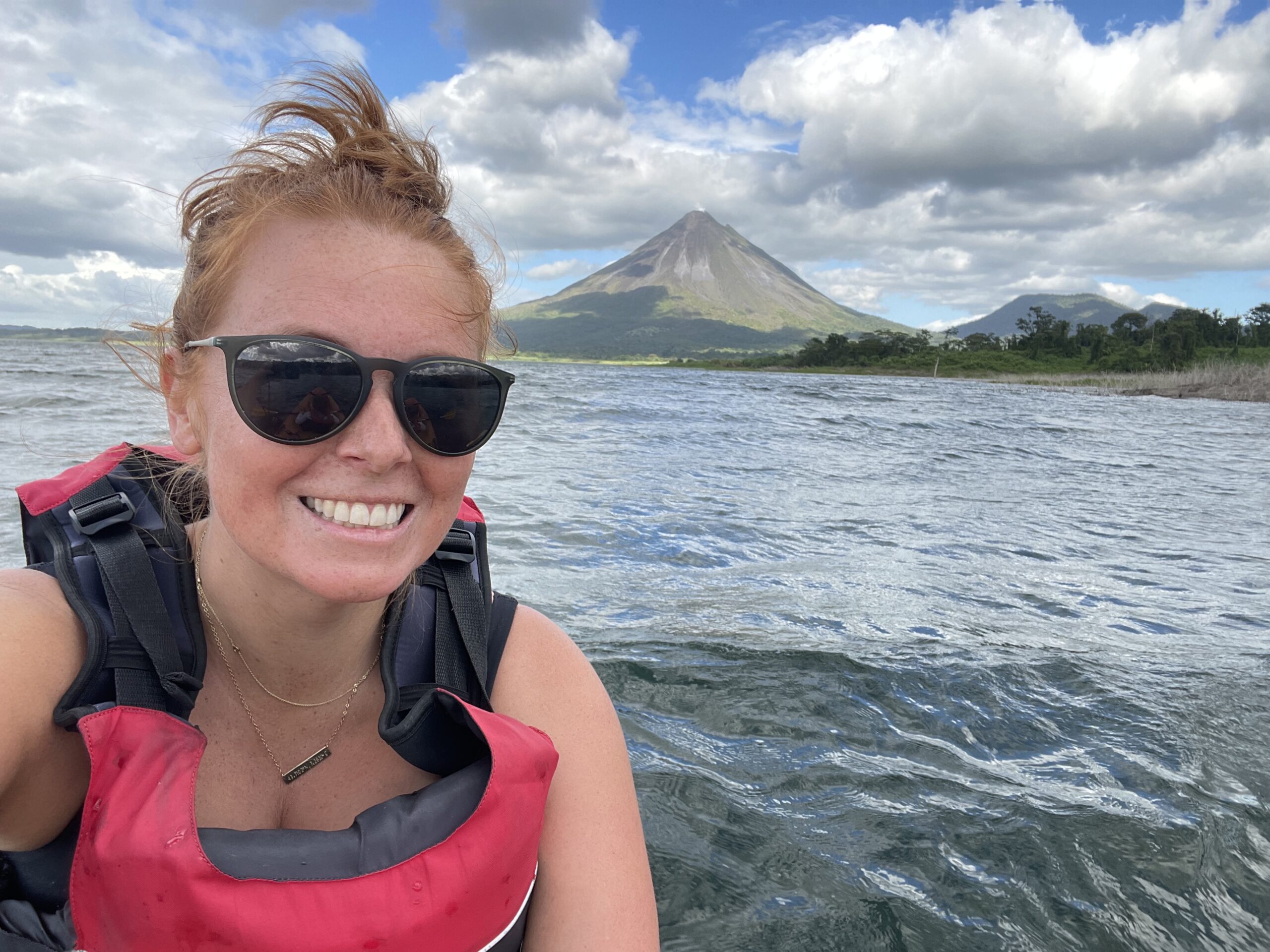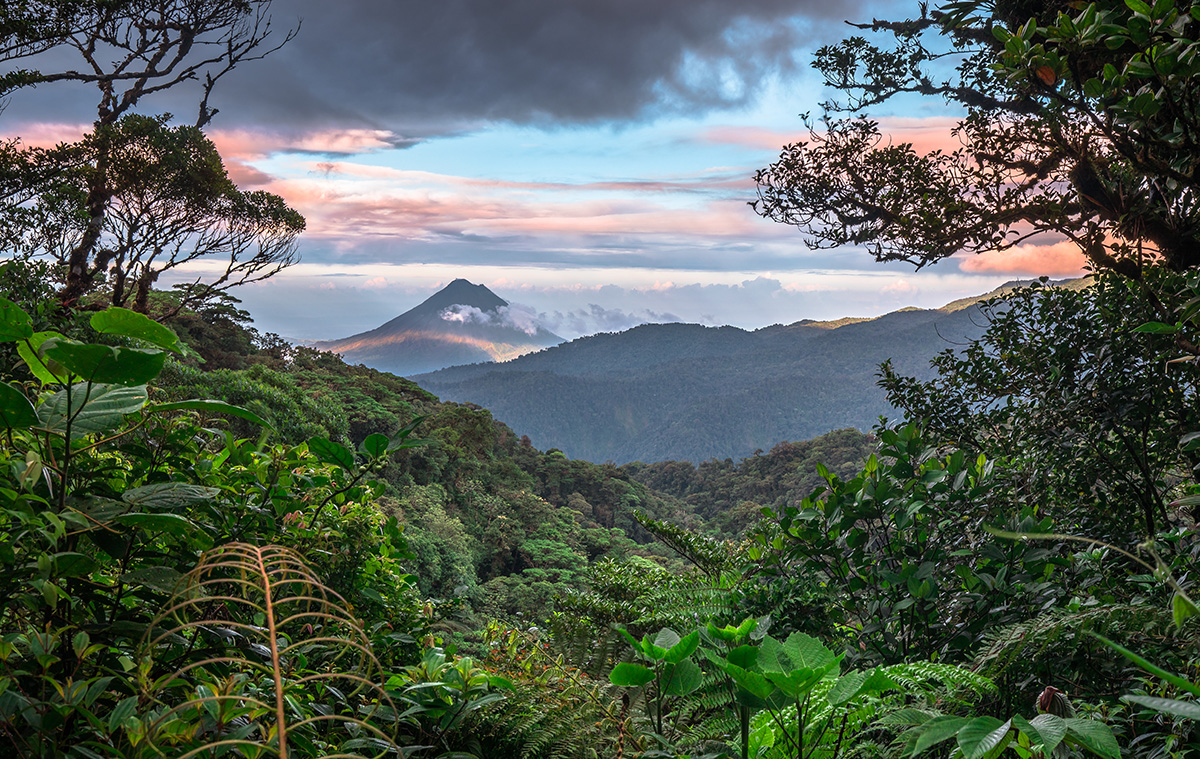
Ashley Holmes, VP, Petley Hare
The longest trip my family ever went on was the month we spent away on my maternity leave and we were hooked. From that point forward, I made a goal to eventually live and work remotely with my family in another country. When Covid struck, my new workplace was my home office and the seed was planted—is there really a difference between working in my home or in another country? When I spoke to our President about spending the next few months abroad, he was 100% on board. He knew I was committed to my work and where I worked was inconsequential. What was once a far-fetched dream, became our new reality.
We traveled over 1800 kilometers across Costa Rica, tackled homeschooling with our son, immersed ourselves in the culture, all while leading an amazing company through some pretty heavy transitions. Working remotely was in many ways like working from home, however, I learned a lot along the way that I thought I could share with others who might find themselves in the same position.
1. You will only be as productive as your internet connection.
The most obvious and most important factor in your success is robust and reliable internet access. Before booking our homes in Costa Rica, I read every review looking for others who had worked there remotely and families referencing wifi for streaming multiple devices to gauge prior guests’ experiences. I asked the owners to confirm their internet speeds, and once they shared that information, I asked for speed tests. If I were to be without the internet, I would consider the alternatives, like hotspotting from my cell phone and the associated cost of data, as well as local coffee shops where I’d be able to work.
2. You still need a proper setup.
If you have ever tried to work at your kitchen table while all your family is bustling around you, you know it’s not conducive to remote work. I made this mistake at the first place we stayed, hoping we could plan our days around my work schedule, but this proved too challenging and my family’s presence was too distracting. I spent one day in our common area before moving to a bedroom, but there was no desk. I had my computer on a bookcase while sitting on a kitchen chair plus two pillows to be at the right height, and my feet on a suitcase. Our second home had a proper desk in a quiet area and it was a game-changer.
3. Time zone differences will make or break you and just one hour can change your whole day.
When we arrived, the time difference was one hour. This was perfect. We were up early anyway, so a 7:30 start to the day meant there was time to walk to the beach to catch a couple of hours of family time before the sunset. It was a dream. Suddenly that changed when Ontario moved to Daylight Savings time, and I hadn’t realized Costa Rica wouldn’t be doing the same. The time difference was now two hours instead of one. My morning routine disappeared. I looked forward to more time in the afternoons, but I had a tough time adjusting to finishing earlier and I’d often keep working until the same time I had been. I can’t imagine doing any more than a two hour difference, which would limit where I would consider doing this in the future.

4. Co-working spaces provide a unique opportunity to meet other digital nomads.
I had tried to find a co-working space many times during our stay, but we were in more remote areas and I kept coming up short. Eventually I discovered a brand new co-working space near where we were staying. I was only able to visit a few times, but it was terrific. It was nice to get out of the house, get a coffee, enjoy a change of scenery, and get some work done. It’s also an incredible way to connect with other digital nomads and make local friends.
5. Remote work in paradise is still work, mindset is everything.
If you think that remote work will feel like a vacation because your destination is where you would vacation, I can assure you it won’t feel that way. You’re not going on a vacation. You’re working abroad. Your exploration and fun will be limited to weekends, just like home. You’ll miss out on things your travel companions are doing if everyone isn’t on the same schedule. A hard day at work, even in paradise, is still a hard day. You’ll want to get out every day after work and soak in your surroundings but just like at home if you overextend yourself, you will burn out.
6. Everyone can have their opinions, but you can’t argue with good work.
Many people still believe that people can’t be trusted to work remotely and their productivity is diminished. I’ve spent much of my career as the youngest person in the room and/or only female in the room and if I’ve learned one thing, it’s to ignore the chatter and let the work speak for itself. I helped lead our company through an acquisition, onboarded new team members, brought on new company partners, designed our new collaborative office space, and reopened our doors to the public after two years. Inspired by the success of our new virtual world, we also launched virtual consultations for our clients visiting our offices and from their own homes.
7. Be prepared to ask for help and be filled with gratitude when you receive it.
Living abroad for the winter didn’t come without the support of so many people in my life. My husband has his own business he put on hold for our family to have this opportunity, and he took on the challenge of homeschooling our son. My in-laws cared for our dog. We had friends who looked after the house. Our son’s teacher encouraged our decision. I’m so grateful for all the people who made this adventure possible for our family, especially my company for giving me the opportunity to have this experience.
8. Not all learning happens in the classroom.
For our son’s schooling we opted to do homeschool versus virtual, as his teacher felt his time would be better spent learning a new culture than behind a screen. A school and work routine was necessary, and though we didn’t strictly adhere to it, we gave it our best shot. He did school an hour or two a day, with lessons mirrored after those he would’ve had at school, and he spent the rest of his time absorbing the culture around him. We most certainly value the principles of the traditional school system, but we also appreciate what the world can teach us. We watched as his confidence grew exponentially as he immersed himself in our new reality.
9. Coming home everything feels different, but the only thing that has changed is you.
The impact of coming home was much more dramatic than we expected. It took us weeks to feel like we belonged here again. We had to recalibrate our mindset while trying to maintain some of the lessons our Costa Rican adventure had taught us. My advice is to have a plan to take it slow when you return. Keep social plans to a minimum, make a list, and tackle one thing at a time, and slowly you will get caught up. You’ll readjust and be ready to take on your old world again, carrying a piece of your new world with you.
